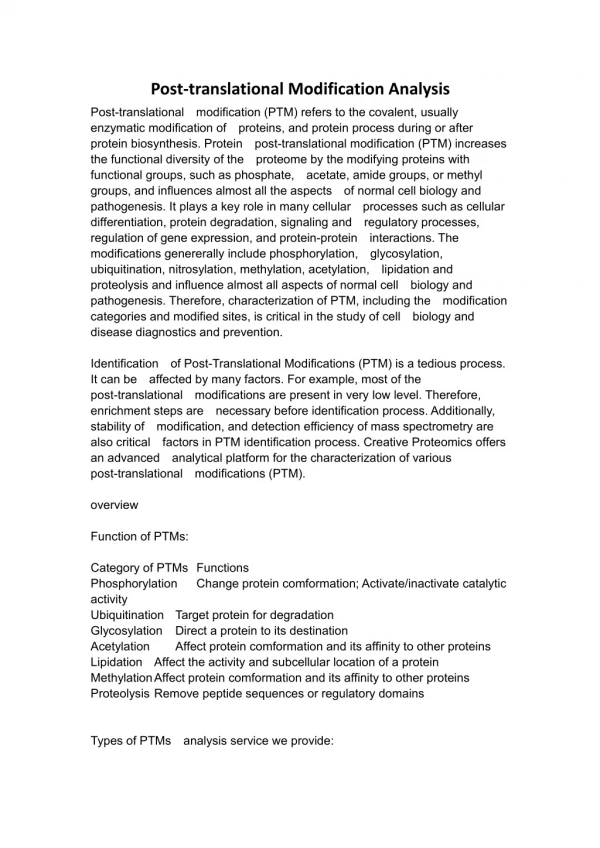Post-translational Modification Analysis
Post-translational modification (PTM) refers to the covalent, usually enzymatic modification of proteins, and protein process during or after protein biosynthesis. Protein post-translational modification (PTM) increases the functional diversity of the proteome by the modifying proteins with functional groups, such as phosphate, acetate, amide groups, or methyl groups, and influences almost all the aspects of normal cell biology and pathogenesis. It plays a key role in many cellular processes such as cellular differentiation, protein degradation, signaling and regulatory processes, regulation of gene expression, and protein-protein interactions. The modifications genererally include phosphorylation, glycosylation, ubiquitination, nitrosylation, methylation, acetylation, lipidation and proteolysis and influence almost all aspects of normal cell biology and pathogenesis. Therefore, characterization of PTM, including the modification categories and modified sites, is critical in the study of cell biology and disease diagnostics and prevention.
★
★
★
★
★
69 views • 2 slides
